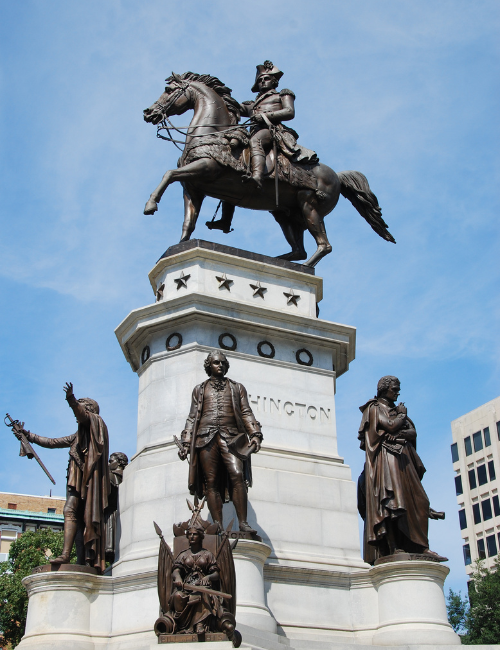
How to Find Out Zoning of My Land in Virginia
Your Virginia property looks perfect, but the county might have other ideas about what you can do with it. Zoning rules decide if your property can handle anything you throw at it.
To figure out the answer to “How to find out zoning of my land in Virginia,” you don’t need a law degree or bribe anyone at city hall. Most Virginia counties have finally joined the 21st century with decent online tools.
You just need to know which buttons to click and which office to call when the internet fails you.
What is Virginia Land Zoning and Why Does It Matter?
Zoning is how your local government keeps everyone from doing whatever they want with their property. Every chunk of land gets a label that tells you what’s allowed there and what’ll get you in trouble.
Your county planning authorities divide everything up into zones with rules attached. Some areas are house-only territory. Others welcome businesses. A few spots are reserved for farms or factories.
The whole point is stopping someone from opening a late-night karaoke bar next to your bedroom or building a chicken processing plant across from the elementary school.
These rules don’t just cover the big stuff either. Zoning tells you how tall your fence can be, how close to the property line you can build, and whether you can run a business from your garage.
Some zones have parking requirements that’ll make your head spin. Others ban certain types of signs or limit your building colors.
Virginia counties love their rules, and they’re not shy about enforcing them.
Types of Zoning Classifications in Virginia You’ll Commonly Find

You’ll surely run into several different types of zoning categories in Virginia, depending on where your land sits. Each type will either work with your plans or completely mess them up.
Residential Zoning District Categories
Residential zones are where people live, sleep, and argue with their neighbors about fence heights.
Single-family residential is the most common type. This is one house per lot, and usually with rules about how big your house can be and where you can put it.
Multi-family residential lets you cram more people into the same space. We’re talking duplexes, apartments, and condos.
The rules are more complex here because you’re dealing with parking requirements, density limits, and sometimes height restrictions that’ll make your architect cry.
Commercial and Industrial Zoning Options
Commercial zones are money-making areas. Retail commercials cover your strip malls, restaurants, and shops. Office commercials are for the boring stuff like insurance agencies, law firms, and places where people sit at desks all day, complaining.
Industrial zoning is for the heavy lifting. Light industrial might allow warehouses and small manufacturing. Meanwhile, heavy industry is where they put the stuff that makes noise, smells funny, or requires big trucks.
Don’t expect to build your dream home in an industrial zone unless you enjoy the sound of forklifts at 6 AM.
Agricultural and Mixed-Use Zoning Types
Agricultural zoning is for farms, ranches, and people who want to keep horses in Virginia‘s heat.
You can usually build a house here, but the lot sizes are bigger, and the rules about what constitutes a farm can get pretty specific.
Mixed-use zoning is the wild card. You might be able to live above your shop or run a business out of part of your house. Sounds great until you realize you’re dealing with commercial building codes, ADA compliance, and parking requirements that’ll make your head hurt.
How to Check Zoning on My Land in Virginia: Step-by-Step Process
Step 1: Gather Your Virginia Property Information

You can’t look up zoning without the right paperwork, and missing documents will slow you down for sure.
The county systems need specific information to pull up your property records, so you need to get everything together before you start clicking around online.
Essential Documents You’ll Need in Virginia
Your property deed has most of what you need, especially the legal description that tells the county exactly which piece of dirt you own.
Property tax bills work, too, as they usually show your parcel number right on the front page.
Don’t just rely on your memory for addresses, either, because Virginia has some weird addressing systems. This is especially true for newer developments where the street names change every few blocks.
Locate Your Parcel Number and Legal Description
The parcel number is also crucial to get zoning information. It’s usually a long string of numbers and letters that looks random but actually tells the county’s computer system exactly where your property sits.
First, check your property tax statement, since the parcel number is almost always printed somewhere obvious.
You can also look at your land’s deed, where it’s buried in the legal description section.
Step 2: Find the Zoning Through Online Resources
Most Virginia counties have decent online tools for checking zoning, though some are definitely better than others.
You can start with these digital options before you call anyone. You might get lucky and find everything you need without talking to a single government employee.
Use County GIS Systems to Find Zoning
County GIS (Geographic Information Systems) is usually your best bet for quick zoning information in Virginia.
These map-based systems let you search by address or parcel number and show you layers of information, including zoning boundaries.
Look for links labeled “Property Search,” “GIS Portal,” or “Interactive Maps” on your county’s website. Some counties have fancy systems that show zoning colors right on the map, while others require you to click on your property to see the zoning details pop up.
State Property Search Databases
The state’s Department of Revenue runs a statewide property search that covers basic information for most counties. However, this doesn’t always show detailed zoning information.
This database is particularly useful for rural Virginia properties where county websites might be outdated, and you can search by owner name, address, or parcel number.
Access Municipal Zoning Maps Online
Cities often have their own zoning rules that override county regulations, so check both if your property sits within city limits in Virginia.
Municipal websites sometimes have better zoning information than the county, especially for newer developments. You’ll usually find these on the city’s planning department or building department pages.
Step 3: Contact Local Zoning Offices in Virginia Directly
When the internet fails you or the information looks sketchy, you need to talk to actual humans. Virginia county planning departments deal with zoning questions all day, so they know exactly what you need and how to get it fast.
You may call during business hours and have your parcel number ready. Most planning departments can tell you the basic zoning classification over the phone, though they might ask you to come in person for detailed restrictions or special conditions.
Don’t be surprised if they transfer you around a bit. Zoning information sometimes lives in different departments depending on how the county is organized.
Some counties require appointments for in-person visits, especially the bigger ones. Meanwhile, others let you walk right in and talk to whoever’s available.
Either way, bring a copy of your property deed and any specific questions about what you want to do with the land.
Zoning Regulations and Restrictions in Virginia

Once you know your zoning classification, it’s essential to understand what it means for your property. Each zone has rules that dictate what you can and can’t do. If you’re unsure, don’t hesitate to reach out to Fast Land Offers for guidance.
Setback Requirements and Height Limitations
Setbacks tell you how far your building has to sit from property lines. They’re different for front, back, and side yards in most Virginia zones.
Residential areas might require 25 feet from the front property line and 10 feet from the sides. Meanwhile, commercial zones often have more flexible setback rules but stricter parking requirements.
Permitted Uses vs. Conditional Uses
Permitted uses are things you can do without asking permission, like building a single-family house in a residential zone.
Conditional uses require special approval and usually involve public hearings where your neighbors can complain about your plans. Needless to say, you need to expect extra time and paperwork if your project falls into this category.
Special Overlay Districts and Additional Restrictions
Overlay districts add extra rules on top of your base zoning, and Virginia has plenty of them for things like historic preservation, environmental protection, or design standards.
Your property might be in a regular residential zone, but also fall under a historic overlay that controls what your house can look like. It might also be possible that there’s an environmental overlay that will limit where you can build.
Common Challenges When Trying to Find the Zoning of Your Virginia Land
Even when you know the answer to “How to find out zoning of my land in Virginia?”, you’ll run into problems that can slow down your research.
Some issues are just annoying, while others can completely derail your project if you don’t find out about them early.
Dealing with Outdated or Conflicting Information
Virginia counties don’t always update their online systems immediately when zoning changes happen. You might find conflicting information between different websites or databases.
The county GIS might show one zoning classification while the planning department’s records show something different.
This is usually because someone forgot to update one of the systems after a recent zoning change.
Properties with Multiple Zoning Districts
Large properties sometimes span multiple zoning districts, which means different parts of your land have different rules.
You might have residential zoning on the front half of your property and agricultural zoning on the back half, or commercial zoning along the road with residential zoning behind it.
This results in headaches when you’re trying to plan any kind of development.
HOA Restrictions vs. Municipal Zoning
Homeowners associations can impose restrictions that are stricter than county zoning and their rules override what the county allows in many cases.
Your property might be zoned for commercial use, but if you’re in an HOA that bans business activities, you’re stuck with the HOA rules regardless of what Virginia zoning laws say.
Tips for A Successful Zoning Research in Virginia
Zoning research doesn’t have to suck if you know which shortcuts to take and which traps to avoid.
Most people get stuck because they started in the wrong place or trusted outdated information.
Start Early and Don’t Trust Everything You Read Online
Do zoning research before you fall in love with any specific plans. Why? Because finding out your dream project is illegal after you’ve already hired an architect will ruin your whole month.
County websites lie sometimes, not on purpose, but because nobody updated them after the last zoning change. Always double-check important stuff with a real human being.
Keep Records of Everything and Everyone
Write down who told you what and when they said it, because zoning information changes, and government employees forget conversations all the time.
Get names, dates, and reference numbers for everything, especially if someone gives you good news about what your property can handle. You’ll want proof later when a different person tells you the opposite.
Be Nice to Planning Department Staff
The person answering phones at the planning office deals with angry property owners all day, so be polite to get better help.
Don’t demand answers and act like they personally wrote the zoning laws to mess with you.
Prepare your parcel number, know what you want to do with the property, and ask specific questions instead of just saying “tell me about zoning” and expect them to read your mind.
How Cash Buyers in Virginia Can Help You With Zoning Complexities
Found out that your Virginia property has zoning issues that would cost a fortune to fix? Virginia land cash buyers who specialize in problem properties might be the solution to your problem.
Cash buyers make their living dealing with zoning nightmares, boundary disputes, and properties where the regulations are so tangled that regular buyers back out.
Working with experienced land buyers is always a good choice because they already know the answer to your question, “How to find out the zoning of my land in Virginia?” They’ve seen every possible complication the state can throw at you.
We buy land in Virginia and other states, including properties with unusual challenges such as agricultural zoning in residential neighborhoods, land split into conflicting zoning districts that hinder development, or properties burdened with unpermitted projects and legal complications left behind by previous owners.
Common Questions About Land Zoning in Virginia
Can I Build a House if My Land is Zoned Agricultural in Virginia?
Usually yes, but you’ll need to check the specific agricultural zoning classification because some types allow single-family homes while others don’t.
Agricultural zoning often comes with minimum lot size requirements that are much larger than residential zones. Make sure your Virginia property meets those standards before you get too excited about building.
How Long Does It Take to Get Zoning Information in Virginia?
If the county has decent online tools, you can find basic zoning information in about 10 minutes once you have your parcel number.
Getting detailed information or clarification from the planning department usually takes a few days to a week. This depends on how busy they are and whether you need to schedule an appointment.
What’s the Difference Between County and City Zoning in Virginia?
City zoning rules override county zoning if your property is within city limits and cities often have stricter or more detailed regulations than counties.
You might have county agricultural zoning, but if you’re inside a city that doesn’t allow farms, you’re stuck with the city’s rules instead.
Do I Need a Lawyer to Change My Property’s Zoning?
Not always, but it helps if you’re dealing with a complicated rezoning request or if neighbors are likely to oppose your application.
Simple variance requests can usually be handled without a lawyer, but full rezoning applications often benefit from professional help because the process involves legal notices, public hearings, and detailed applications that need to be done right.
Can HOA Rules Override Virginia Zoning Laws?
Yes, HOA restrictions can be stricter than county or city zoning, and you have to follow both sets of rules.
Your property might be zoned for commercial use, but if your HOA covenant bans business activities, the HOA rules win, and you can’t operate a business there.
Key Takeaways: How to Find Out the Zoning of My Land in Virginia
Zoning research in Virginia is not that difficult if you know where to look. However, you still need to be patient and prepare the right documents. Also, be extra nice to the office clerks so you can get the information fast. As we’ve shared, you should start with your county’s GIS system and verify everything with phone calls to the planning department. If you’re dealing with zoning complications that seem too expensive or time-consuming to resolve, reach out to Fast Land Offers! Call us now at (843) 606-1001 to explore your options.
Helpful Virginia Blog Articles
- Can You Sell Land if You’re in Foreclosure in Virginia
- How to Sell Inherited Land in Virginia
- How to Sell Land With a Lien in Virginia
- Can You Sell Land if You Owe Taxes in Virginia
- How to Sell Land Without an Agent in Virginia
- Paperwork for Selling Land by Owner in Virginia
- How to Find Out the Zoning of My Land in Virginia
- How to Sell Land with Mineral Rights in Virginia

Sell Your Land The Easy Way: Get Your Cash Offer Below…
We are direct land buyers. There are no commissions or fees and no obligation whatsoever. We buy land in 30 days or less! Start below by sharing where your property is and where we can send your offer…